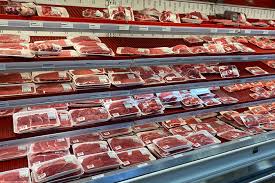The legislation will clarify the definition of beef and pork and require alternative proteins to display the word “imitation” on their packaging.
WASHINGTON — US Senator Deb Fischer (R-Neb.) decided on Nov. 14 to reintroduce the Real Marketing Edible Artificials Truthfully Act, also known as the Real MEAT Act.
The legislation stated that it would clarify the definition of beef and pork for labeling purposes by requiring alternative proteins to display the word “imitation” on their packaging.
“It’s time to end the deceptive propaganda of plant-based protein products that deliberately confuse consumers by mimicking beef and pork,” Fischer said. “My Real MEAT Act will clarify that these imitation products aren’t held to the same food safety and labeling standards as real, nutritious beef and pork. Americans deserve to know what’s on their dinner plate, and my bill will bring certainty to the supermarket and end the smear campaign against real meats.”
The bill would also say that “beef” is defined as the flesh of cattle and “beef product” as edible products produced in whole or in part from beef, exclusive of milk and milk products. The term “pork” is defined as the flesh of pigs, and “pork product” is any food produced or processed in whole or in part from pork.
Other terms defined by the legislation include “meat,” “meat food product,” “meat byproducts” and “meat broker” based on the definitions established in the code of federal regulations.
Fischer received support from the US Cattlemen’s Association, National Cattlemen’s Beef Association (NCBA) and agriculture organizations in her home state of Nebraska.
“The National Cattlemen’s Beef Association has long been a supporter of the Real Meat Act,” said Buck Wehrbein, vice president for the NCBA and a Nebraska cattle producer. “Cattle producers work hard every day to raise a high-quality, wholesome protein and we appreciate Congress’ continued effort to bring further transparency to plant based products.”
The bill would also require the US Department of Health and Human Services to submit a 60-day notice to the Secretary of the USDA if a product is misbranded. If the HHS Secretary did not initiate the enforcement within 30 days, the USDA Secretary could then mark the product as mislabeled.
In 2019, Fischer introduced another version of the Real MEAT Act. Texas Governor Greg Abbott signed legislation in June requiring specific labeling for meat alternatives and cultivated meat products.














